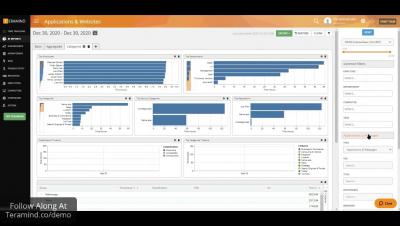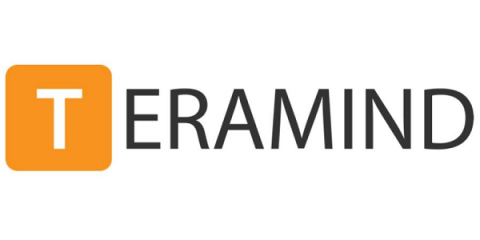Security | Threat Detection | Cyberattacks | DevSecOps | Compliance
Teramind
Top 5 Insider Threat Detection and Prevention Software of 2021
Dealing with insider threats requires a different strategy from other security challenges because of their very nature. Insiders have a significant advantage. They are aware of the organization’s policies, procedures, technology and vulnerabilities. They often have access to important systems, business IP and sensitive data. As such, they can cause a business the most damage compared to external attackers such as hackers.
Top 5 Employee Monitoring Software For 2021
Employee Monitoring is the process of tracking employee activities such as app use, internet browsing, email communications, file transfers etc. An employee monitoring solution allows a business to keep an eye on its users so that they cannot put the organization in harm’s way intentionally or accidentally by leaking sensitive data, sabotage, fraud, theft or other miscreants.
The Future of Ransomware: Preparing for the Next Generation of Ransomware Attacks
Ransomware has been the scourge of cybersecurity and may have led to a recent death. Now it soon may get way more dangerous The threats to cybersecurity are constantly evolving. As security teams develop solutions to the threats, malicious actors change their tactics to keep chasing their ill gotten gains. After all, the Game is the Game. And the game keeps changing. In recent years, ransomware has been the weapon of choice for hackers looking for a payday.
Going Beyond Insider Threats: How to Balance Post-COVID Cybersecurity with Productivity Data for Remote Employees
For many organizations, the past several years have been defined by an unending pursuit of data privacy and cybersecurity. Prompted by a daunting threat landscape, new regulatory standards and increasingly onerous consequences, companies invested millions in securing their digital infrastructure as an all-in attempt to meet the moment.
The Importance of Privacy-Focused Monitoring In Light of COVID-19 Work Disruption
The COVID-19 pandemic has increased the already-robust adoption rates for employee monitoring software. Prominent publications, including The Washington Post and The New York Times, have reported on this trend, and they have documented employees’ general unease about the practice. Indeed, even before employees were relegated to their homes, many were uncomfortable with the idea of invasive and unbridled digital oversight.
Raising the Red Flag on the Insider Threat from Ransomware
There was nothing in particular that should have drawn attention to the two individuals sitting for drinks at the bar in Reno. Just two old colleagues catching up over some drinks. But if someone had paid close enough attention (and perhaps spoke Russian), then they might have overheard that one of the pair was attempting to recruit the other into what was possibly one of the biggest ransomware operations to date.
Remote, Hybrid Work Need Better Data Security
2020 is a uniquely transformative year. Prompted by a global pandemic, we’ve been forced to change many things about how we live, work and relate. For most businesses, this means a rapid and comprehensive shift toward remote work. While more than half of all employees participated in a rapid transition to remote work, it’s clear that this is more than just a temporary change.
Remote Work, Threat Fatigue, and Budget Constraints: 3 Priorities for Cybersecurity Heading into 2021
Disagreement is one of the defining trends of 2020. However, I think most of us would agree that this year hasn’t turned out to be the kind of year that many of us anticipated when we celebrated on December 31st. Difficulty abounds on many fronts, reducing our ability to operate with precision and excellence. For companies balancing concerns about employee health, adjusting to a new hybrid workforce, and responding to shifting consumer demands, the challenges are many.
How Working Remote May Have Helped Twitter's Hackers
The takeover of high profile Twitter profiles last month on July 15 made headlines when public figures like former President Barack Obama, Jeff Bezos, and Elon Musk began announcing that they wanted to “give back” to the community. But instead of making a donation to a COVID-related charity or something similar, they were promising that if people would send them Bitcoin, then they would return twice as much as they were given.



